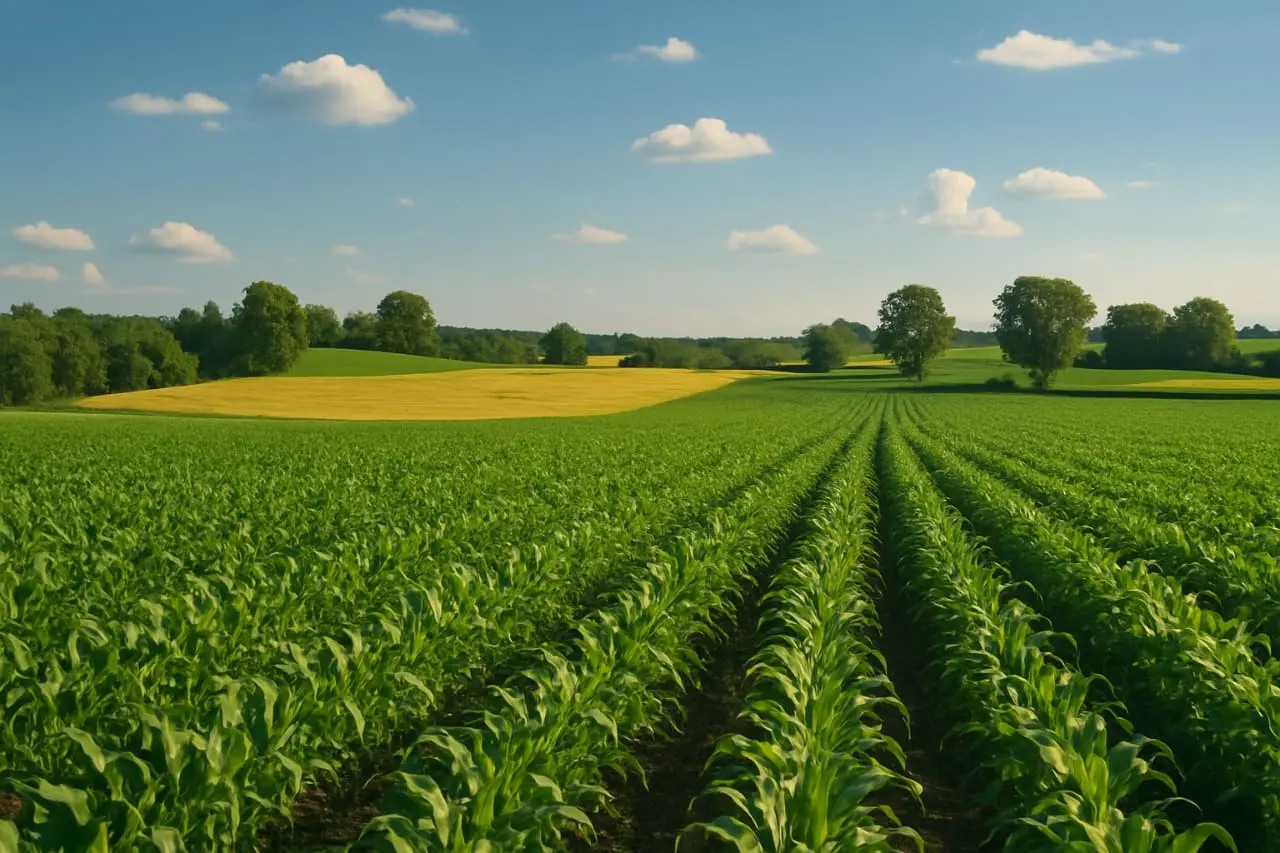Index
- Introduction
- Why Farmland Is a Low-Risk Investment
- High-Reward Potential of Farmland
- Farmland Investment Benefits
- Land Appreciation and Passive Income
- Sustainable Farming and Long-Term Security
- How to Invest in Managed Farmland
- Final Thoughts
1. Introduction To Farmland Investment
In a world of economic uncertainty and volatile markets, agriculture land investment has emerged as a stable and long-term wealth-building strategy. With increasing global food demand and a finite supply of cultivable land, farmland offers both security and profitability. For investors seeking alternatives to stocks or crypto, farming investment opportunities provide a dependable route to passive income and asset appreciation.
2. Why Farmland Is a Low-Risk Investment
Unlike stock markets or real estate cycles that are prone to frequent ups and downs, farmland investment carries far lower risk. Agricultural land is tied to essential needs—food production and land ownership—which means its demand remains consistent even in economic downturns.
As urban expansion and climate change reduce the availability of arable land, the value of agricultural property continues to rise. This trend makes agriculture land investment a secure investment that protects capital while offering steady returns.
3. Very High-Reward Potential of Farmland Investment
While the risk is low, the reward from farmland can be significant. Investors benefit through two key channels:
- Land appreciation—the rising value of the land over time
- Annual income—generated through leasing to farmers or revenue-sharing from crops
Over the past decade, farmland has delivered returns that outperform traditional real estate and fixed-income instruments, especially in developing markets. For long-term investors, this high-yield potential makes farmland a unique and attractive asset class.
4. Farmland Investment Benefits
Here are some of the major farmland investment benefits:
- Consistent Cash Flow: Renting out farmland generates regular income.
- Inflation Resistance: Agricultural assets often rise in value alongside inflation.
- Low Market Correlation: Farmland doesn’t respond to market crashes the way stocks do.
- Physical Security: Land is a tangible, finite asset that doesn’t lose its utility.
- Ever-growing Demand: A growing population and food consumption guarantee ongoing utility.
These factors make farming investment opportunities not just profitable, but also resilient across economic cycles.
5. Land Appreciation and Passive Income
One of the most attractive features of agriculture land investment is land appreciation. As urban areas expand and infrastructure projects emerge, the value of nearby agricultural land often rises. This natural appreciation makes it ideal for investors seeking long-term capital growth.
At the same time, farmland offers passive income. Landowners can lease their land to farmers or agribusinesses and earn a stable annual return, often with minimal involvement. This dual benefit—appreciation and income—makes farmland one of the best assets for both growth and stability.
6. Sustainable Farming and Long-Term Security
Modern investors are increasingly concerned with ethics and sustainability. Sustainable farming practices—like organic cultivation, crop rotation, and water-efficient irrigation—not only protect the environment but also boost land value over time.
Investing in farmland that prioritizes sustainable methods ensures long-term soil productivity and attracts premium buyers or tenants. Moreover, sustainable farmland aligns with global ESG (Environmental, Social, Governance) goals, appealing to conscious investors and institutions alike.
Farming investment opportunities rooted in sustainability also reduce risk by minimizing dependence on harmful or outdated practices. This makes the land more resilient, productive, and marketable in the long run.
7. How to Invest in Managed Farmland
If you’re interested in agriculture but don’t want to manage crops or tenants, you can invest in managed farmland. This model involves professional management firms that take care of all day-to-day farming activities on your behalf.
Benefits of Managed Farmland Investment:
- Professional oversight leads to optimized crop yields
- Turnkey ownership with minimal involvement
- Transparent reporting on costs, revenues, and land health
- Legal clarity on land titles and compliance
- Access to modern techniques and technology-driven farming
For urban dwellers or global investors, managed farmland investment is the easiest way to benefit from agricultural land ownership without operational hassles.
8. Final Thoughts
In today’s uncertain economic landscape, agriculture land investment stands out as a uniquely balanced opportunity. With low risk, rising demand, and stable income, farmland offers a rare combination of capital protection and wealth creation. It’s also a real, tangible asset that you can pass on to future generations.
As more investors look to diversify their portfolios, farming investment opportunities are gaining popularity—not just for their returns but for their long-term relevance. Whether you’re aiming for land appreciation, passive income, or a secure investment aligned with sustainable farming, farmland delivers on all fronts.
Ready to Invest?
Start exploring managed farmland investment options today. Look for land in regions with strong agricultural infrastructure, legal clarity, and future growth potential. With expert management and the right strategy, your farmland investment could be the most rewarding decision you make this decade.




Join The Discussion